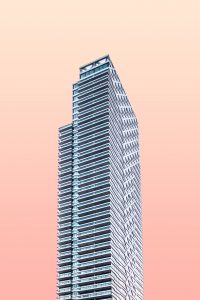This time last year, a survey of chief financial officers (CFOs) by the Duke University Fuqua School of Business showed that 67 percent of CFOs believed the U.S. would see a recession by the second half of 2020. That was long before anyone thought about COVID-19 or a coronavirus pandemic. Eighty-four percent of them believed the recession would start by the first quarter of 2021. One month ago, CNN declared the coronavirus recession has begun. When the financial crisis of 2008 hit, I lost half my business because it was tied to real estate. That recession was caused by widespread deregulation and a housing bubble burst. Today’s recession has nothing to do with real estate investing.
That doesn’t mean there won’t be implications for the real estate sector.
What Has Coronavirus Done to The Economy?
More than 17 million Americans filed for unemployment in March. That represents a 13 percent unemployment rate. Several states have ordered “nonessential” business closures, and some industries have completely shutdown.
 While the federal government has taken measures to mitigate the impact of these discomforts, many Americans will feel the repercussions for months. The $2 trillion stimulus package passed in late March will help some Americans struggling to pay rent and put food on the table, but it might not be enough for some who could see their jobs completely disappear if their employers can’t recover. The Paycheck Protection Program was designed to encourage employers to continue paying their employees despite business shutdowns, but, again, if economic conditions worsen or continue for a long stretch, it may not be enough.
While the federal government has taken measures to mitigate the impact of these discomforts, many Americans will feel the repercussions for months. The $2 trillion stimulus package passed in late March will help some Americans struggling to pay rent and put food on the table, but it might not be enough for some who could see their jobs completely disappear if their employers can’t recover. The Paycheck Protection Program was designed to encourage employers to continue paying their employees despite business shutdowns, but, again, if economic conditions worsen or continue for a long stretch, it may not be enough.
In real estate, sellers are taking their homes off the market as prices decline. Not only are sellers reluctant to sell, but buyers are also reluctant to buy. On the other hand, there has been a surge of 3-D video home tours online even as new home listings dropped by 27%.
Commercial real estate is seeing its own problems. Retail stores that have been closed or affected by social distancing are struggling to pay their rent. Multi-family residential is experiencing the same tug of war between tenants and landlords, and new construction has been hit as some contractors are out of work.
Nevertheless, we could be turning a corner. President Donald Trump has signaled he’s ready to open the economy on May 1 while several state governors are following suit. Pennsylvania Governor Tom Wolf, who has had the strictest shutdown policy in the country, has targeted May 8 as the day of gradual re-opening.
The question on the table is, what will do this for real estate investing in 2020.
Will 2020 Be a Good Year for Real Estate Investing?
I’m optimistic, and I’m not the only one. One real estate investor is suggesting “Subject To” is the way to go in the current market.
 Rather than suggest a single strategy that is best for the current market, I’d like to point out that there is always some kind of deal that is worth considering in any type of investing market. There are always boom and bust cycles, and that includes recessionary environments. Savvy investors learn to make money in all of them.
Rather than suggest a single strategy that is best for the current market, I’d like to point out that there is always some kind of deal that is worth considering in any type of investing market. There are always boom and bust cycles, and that includes recessionary environments. Savvy investors learn to make money in all of them.
Real estate cycles typically swing from favoring buyers to favoring sellers, then back again. You also see swings from residential to commercial, and from rental properties to home buying. What’s interesting about the current real estate environment is that it was strong up until the coronavirus pandemic shut the economy down. Since then, it has reached a moment of stasis. We are not dealing with normal market forces.
On the surface, it might seem that the real estate markets are hurting, but I don’t see it that way. I see a strong market waiting for the tide to go out.
3 Potential Scenarios for Real Estate Investing in H2 2020
Looking ahead, I see three possible scenarios for real estate investing in the second half of 2020, but it all really depends on what happens in May.
- Full Recovery – The first scenario is a full recovery. If the country’s economy reopens in May with little turbulence, the real estate economy could bounce back to its pre-pandemic state. In other words, people will start buying and selling homes again, construction will start up again, and we’ll see a full recovery. If this happens, online real estate investing could see a surge as people staying at home during the crisis discover online investing platforms, and pick up their online investing activity when they go back to work.
- Partial Recovery – If the country’s economy reopens and a spike in COVID-19 cases occurs as a result, we could see a new ripple of business closures. However, I think it’s likely that state and federal governments, as well as real estate industry professionals, will be better prepared and install control measures that protect people’s health while continuing to do business. This is already beginning to happen as some states are opening up their economies while requiring face masks to be worn in public. Under this scenario, online real estate investing platforms like Sharestates will benefit as more investors respond by taking their investments online.
- Slow Recovery – Under the slow recovery scenario, COVID-19 cases could spike due to a reopening of the economy and recessionary economic conditions have a bigger impact on the economy as CFOs predicted last year. In this case, online real estate investing may not be as popular as it would be in the above scenario, but will still see a boom.
Much of the progress for the rest of the year will be determined by how the coronavirus responds to summer weather conditions, currently an unknown, and how quickly testing can be done and a vaccine created.
Real estate is intrinsically local. That means the recovery from the current economic climate will likely be local, as well. New York and other major metro areas impacted significantly by a high number of cases of COVID-19 could see a slower recovery than other parts of the country where there has been a negligible impact. Since many real estate crowdfunding platforms offer deals based on physical property projects such as new construction and flipping, this new reality could impact online real estate investing. But it shouldn’t be across the board. Again, in local geographic areas where the impact has been insignificant, there will likely be little blowback. I, for one, am not planning to make any changes to my online real estate investing strategy in the short-term.


